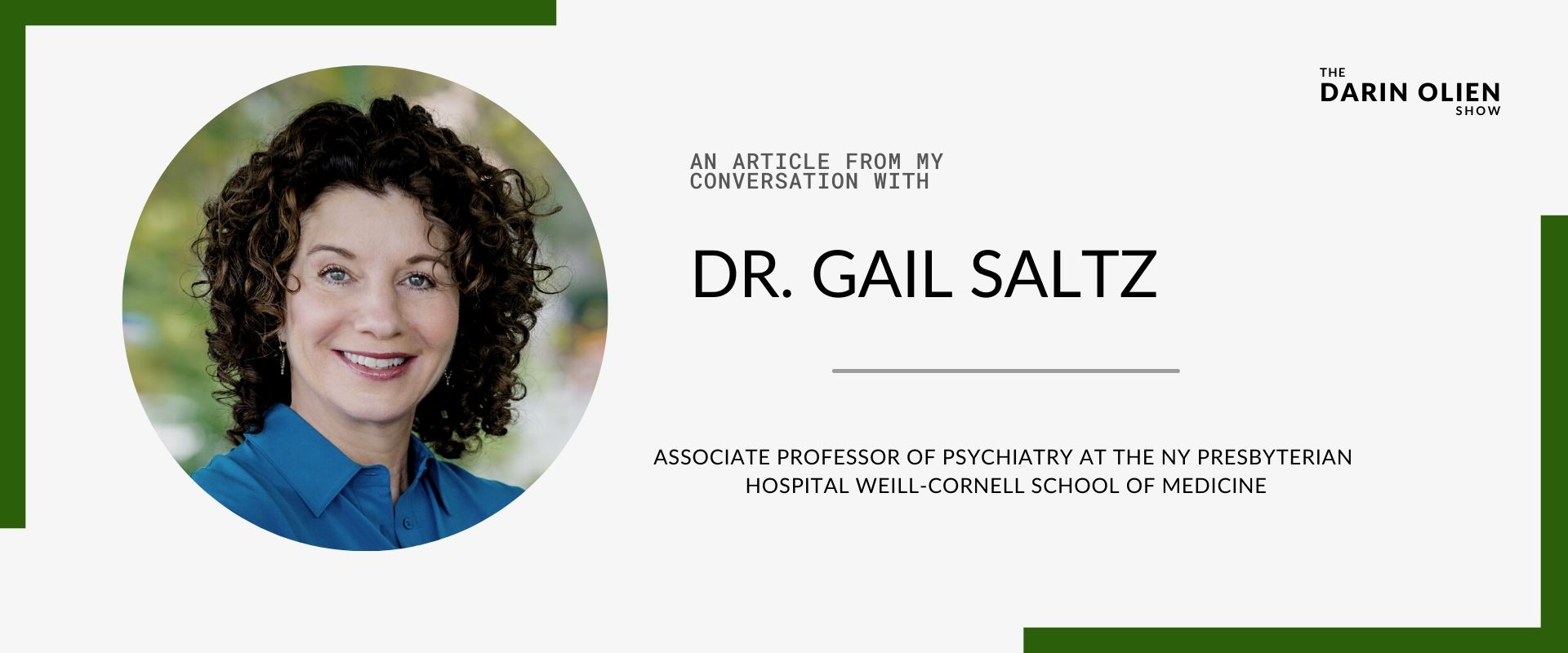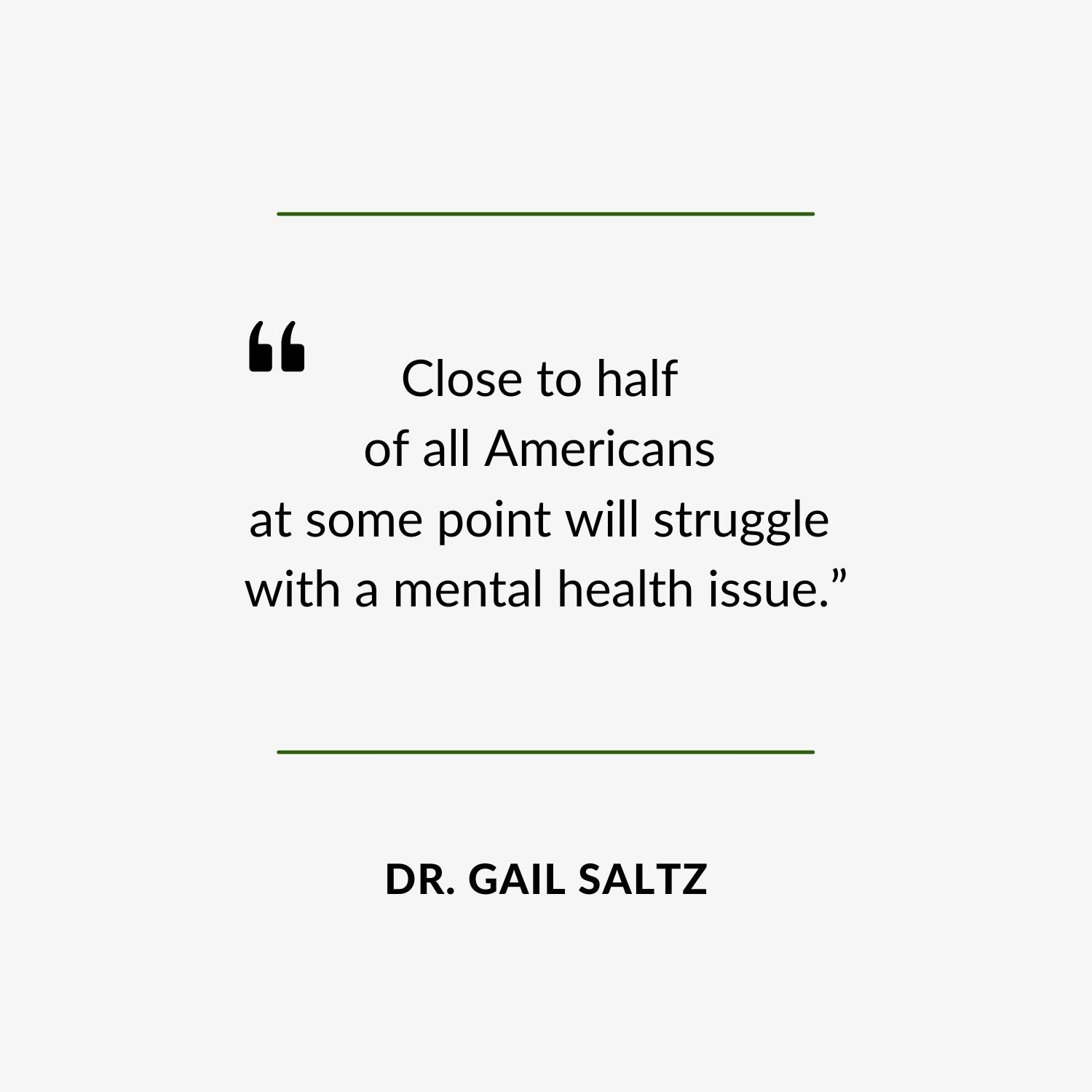21 Apr Are You Prioritizing Your Mental Health?

Your mental health is your health. Most Americans will experience a mental health issue at some point in their lives. Yet the stigma surrounding mental health issues is what will prevent them from seeking help. Are you prioritizing your mental health??
On a recent episode of The Darin Olien Show,
I sat down with Dr. Gail Saltz to chat about mental health in America. Gail is the Associate Professor of Psychiatry at the NY Presbyterian Hospital Weill-Cornell School of Medicine. She is also the host of the podcast, How Can I Help?. Best known for her work as a relationship, family, emotional wellbeing, and mental health contributor in the media, many outlets turn to Dr. Gail as a go-to expert for thoughtful commentary on all things mental health. And on top of all that, Dr. Saltz is also the author of numerous best-selling books like her latest, The Power of Different: The Link Between Disorder and Genius.
Stigma Surrounding Mental Health 
Because of the pandemic, mental health received a much-needed boost into the spotlight. A lot of us weren’t ok– and we weren’t being quiet about it. Mental health became the topic on talk shows, news segments and TikTok videos. People were openly talking about their struggles, and discussing the steps they were taking to get help.
However, not everyone was seeking the help they needed. Some may have been struggling with their mental health for the first time and didn’t know where to turn for help. Or they may have felt shame or embarrassment to admit they had a problem. This isn’t new. The stigma surrounding mental health has been around for generations. You could risk being seen as weak, or crazy, if you reach out for help, or enter therapy.
“Stigma is the number one reason why people don’t come to treatment,” Gail told me. And if they do overcome that fear and seek treatment, they don’t always stick with it. “The goal of therapy is not to make you happy,” Gail explained. “The goal of therapy is certainly not to make you perfect or good in some way. The goal is to reduce suffering.” Is this misconception about therapy why some patients don’t continue going? Maybe.
Going Down the Rabbithole of Why
No matter what kind of therapy you decide to try, the goal of most is to help you understand your patterns. When you understand why you do certain things, you can consciously make different decisions and hopefully get different outcomes. Or as Dr. Saltz explained, “Keep going down the rabbit hole of “why”. Why do I keep doing that?” Why do I end up in toxic relationships? Why do I have so much pent up anger? Why do I hide my true feelings to keep the peace? Asking yourself all these tough questions help you get to the bigger picture of why you are the way you are. And once you know, and can confront those feelings, you can start to make healthy changes.
How Mental Health Affects Overall Health
Your mental health affects your entire body. If you’re suffering from anxiety or depression and you’re not seeking help, your body is not thriving. If your mind is not thriving, your body can’t thrive. Anxiety, depression and other mental health issues have an extreme impact on your eating habits, your sleep and your overall well-being. If you’re not taking care of your mind, you’re not taking care of your body.
In order to live a healthy, fulfilling life, we must acknowledge when we need help. If you’re struggling with your mental health and aren’t sure how or where to get help, reach out. Talk to your friends, your family or your doctor. I guarantee you’re not alone in this–we all struggle. But therapy is designed to lessen your struggle, to help make sense of why you’re struggling, and to give you tools and strategies to thrive. Like Dr. Saltz says,
“Mental health is health. So take care of your health because they are one in the same.”


Sorry, the comment form is closed at this time.